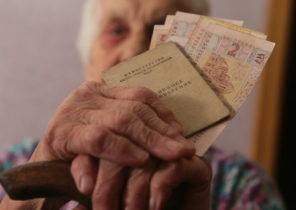
Published in the UK, edited by Gabriel Gorodetsky’s book “the Diaries May red Ambassador to St. James Court 1932-1943”, is, according to the publisher, a unique piece. We are talking about diary of a diplomat of the highest rank Ivan Maysky (1884-1975), which he wrote before the Second world war and during the war.
Ivan Maisky, Soviet Ambassador in the United Kingdom in 1932-1943 years, from his position and quite frankly described the talks between Joseph Stalin and Winston Churchill (Winston Churchill) and their surroundings, as well as the events leading up to the war and what was happening during the war. The diaries were written in a time when no one in the Soviet Union did not dare to lead them.
In the 1950s, the years may was accused of espionage, and his diaries were confiscated. They have not had access for decades.
Mention in the diaries about the Winter war due to the fact that in 1929-1932, to work in the UK, may was Ambassador of the Soviet Union in Finland.
In the epilogue of the diaries of Ivan Maisky writes wistfully to the writer Hg wells (Herbert Wells): “I did not lose heart and not lose morale”.
“Russophobia and sovetofobiya very strong here now. This is reminiscent of something like attack of General madness,” said Ivan Maisky wells on Finland in the early 1930-ies.
May was repeatedly asked to appoint him to another country. “The political soil here is very rocky, and count on any serious achievements in the field of diplomatic is not necessary to study there is nothing, besides Helsinki — a small town and very boring.”
The diaries begin with a description of the “Helsingfors” unexpected destination in London.
The beginning and end of the Winter war
On the eve of the Winter war in November 1939 the may makes an entry in the diary that the Soviet Union broke Finland diplomatic relations and a Treaty of non-aggression and peaceful settlement of conflicts. It may have been negotiating on this issue, and it is not expected that the contract will end.
According to the remark of the editor, made by him between the lines, “May had the unpleasant task of explaining that the reason for the war, supported the British, was the stubbornness of the Finns”.
1 Dec the may writes about the Winter war, taking the word “war” in quotation marks: “so we, too, have their “war”! Chanderi and Tanner brought the same thing to a sharp conflict. November 30 morning, the Red Army was forced to cross the border to Finland and moved deep into its territory”.
May writes that the war was met by a “furious” reaction in Britain.
December 12, 1939 may makes an entry, explaining why the Red army in Finland moves slowly.
“The nature of the surface, climate, time of year (short days, low clouds, lakes and swamps are still not frozen) — all of this against us. In such circumstances, the mechanization of the red Army can not impact with full force. Finally, on the Karelian isthmus, the Finns have a pretty significant increase based on using the existing rivers, lakes and swamps. All this, of course, be overcome, but requires patience.”
On the same day, may predicts that the indignation of the British Winter war will take place as soon as “events in Finland comes to an end.”
“Vile demonstration of angry impotence”
About the development of war entries in the diary, the envoy almost never does. However, he repeatedly describes his attempts to keep the British from giving aid Finland.
On 26 January 1940 he records the attempts of the ruling British circles, supporting the Mannerheim, to raise the spirit of the small neutral countries, and tightening a war in Finland, to weaken the Soviet Union, “tying us hand and foot in the North”.
21 Feb 1940, Ivan Maisky wrote that the victory of the red army at the front made a strong impression on England. According to him, most sensible Brits are more reserved approach to aid Finland, but less intelligent have made a different decision, “sensing the weakening of Mannerheim”, and even launched a company for sending troops, “daring to start an open war against the Soviet Union.” May believes that the first group has more weight.
March 13, 1940 may have recorded that didn’t get any sleep the previous night, expecting an important message from Moscow. They touched the end of the Winter war.
“Hurrah! I was ready to throw his hat in the air… We left the area at a terrible danger. We have retained the ability to stay out of the imperialist war. And that we succeeded: the Leningrad and in General, our North-Western borders now safe.”
Ivan Maisky described the visit of the British Parliament, where the actions of the Soviet Union was condemned.
“Looking down from the diplomatic box, I have a sense of superiority could look at this vile demonstration of angry impotence. However, I became more than ever, it is clear how the time peace was concluded”.







